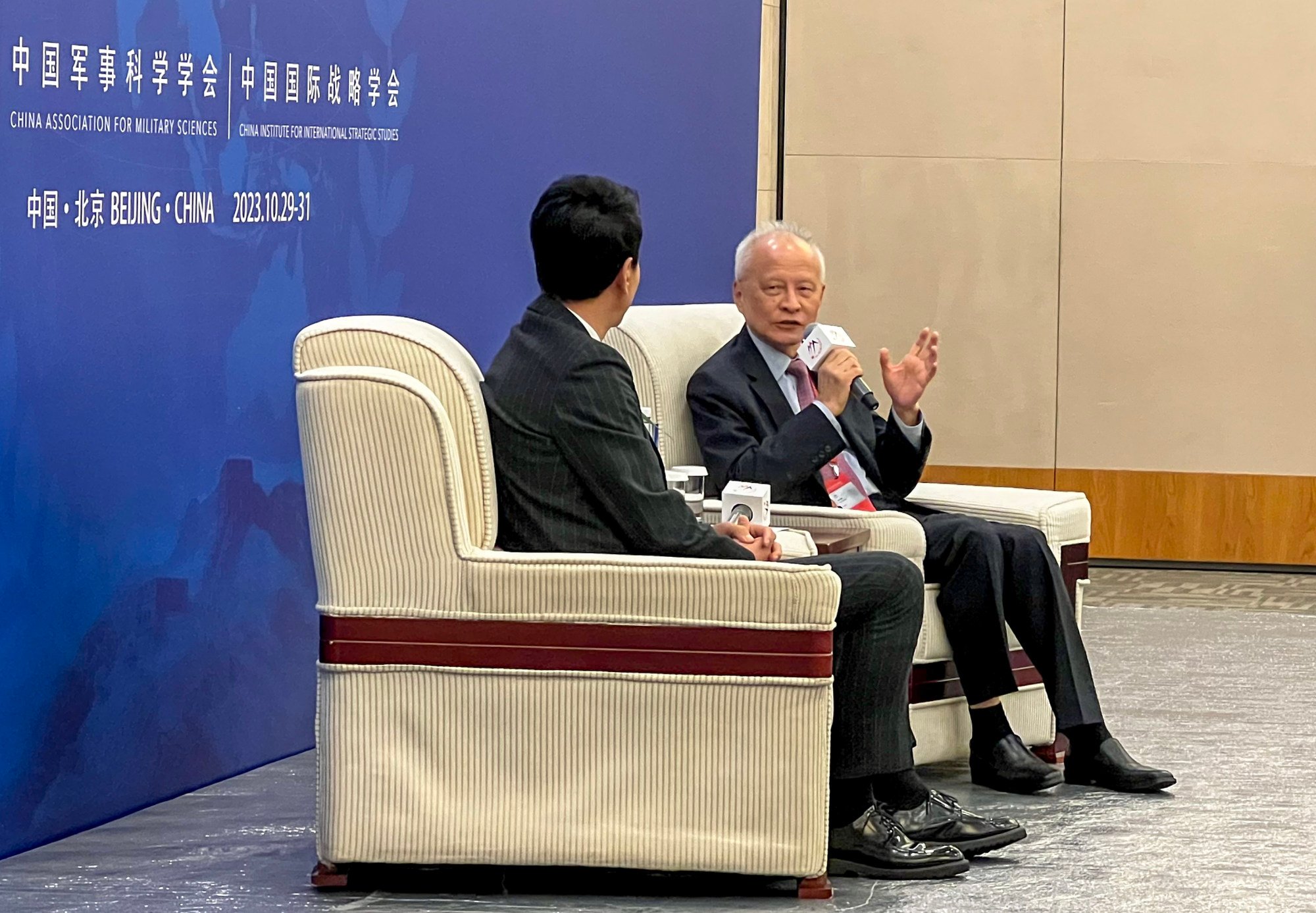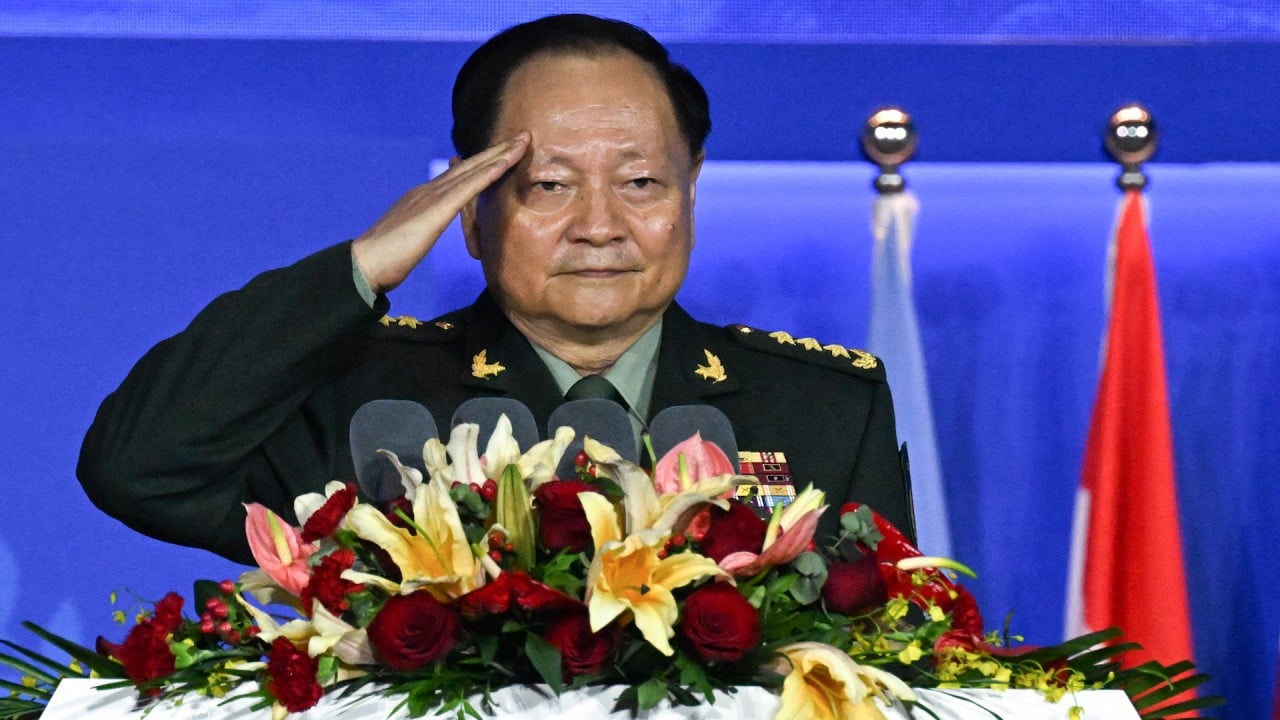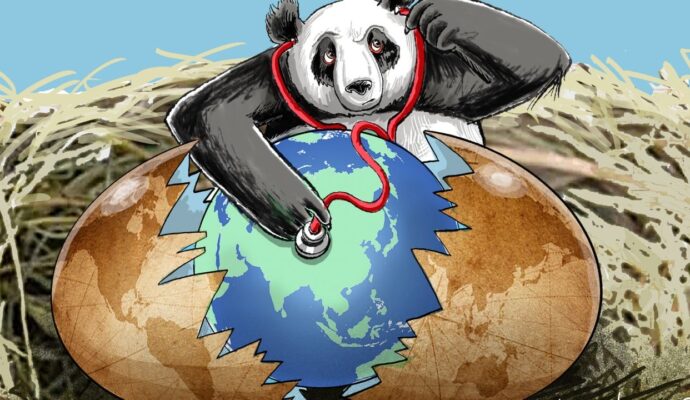“The way [a conflict] gets worse is when you say: ‘Only my interest matters and none of yours are legitimate.’ That really drives security dilemmas and escalation further,” Sbragia said.
Japan has expressed concern about China’s increasing military cooperation with Russia, which has seen the two countries conduct joint patrols near Japanese territory, and its stance towards Taiwan.
Lloyd Austin’s absence at Xiangshan Forum a missed opportunity: Chinese general
Lloyd Austin’s absence at Xiangshan Forum a missed opportunity: Chinese general
Its response – which includes an increased military budget, acquiring counterstrike capabilities and closer ties with the US – has prompted repeated criticism from Beijing.
Michael Swaine, a senior research fellow at the Washington-based Quincy Institute for Responsible Statecraft, told a panel event that the US and China both needed to show they were willing to establish middle ground, avoid “overly exciting” the other and recognise other countries’ key interests.
“And it’s not on either side by just repeating the usual bromides and mantras about win-win [cooperation] and about liberal democracy and about a free and open Indo-Pacific,” Swaine said. “It has to be done in a much more specific way that recognises the fundamental differences of the countries.”
But Swaine said that Asia’s relative stability could be disrupted in the next 10 to 15 years because of China’s growing strength.
“China’s emerging isn’t intrinsically a hostile or negative phenomenon, but it does create issues of uncertainty,” he said.
He highlighted Taiwan and the Korean peninsula as potential areas for contention – if not outright conflict – and said both China and the US disagreed on what their vital interests in those places were and what would preserve order in the Asia-Pacific.
Chinese academics and former officials largely blamed the deterioration of ties on the US, which they said did not respect China’s way of development, especially its political system.
Cui Tiankai, the former ambassador to the US, said better relations depended on the US accepting Beijing’s political system, its approach to human and civil rights, and its efforts to gain control over Taiwan.

“The crux is that, on these basic questions, can the US show mutual respect, coexist peacefully and work together to achieve a win-win scenario?” he told a forum at the event.
In recent years the US has increasingly expressed concern about what it sees as Beijing’s efforts to export its values and challenge the international order and the clash between democratic and authoritarian values.
Fu Ying, a former foreign vice-minister, told one panel event that the US had been trying to transform Eastern Europe during the Cold War and started the war on terror in the Middle East.
By contrast she said the Asia-Pacific had seen no major wars, political conflict or social instability in the past four decades, apparently overlooking incidents such as coups in Myanmar, Fiji and Thailand, ethnic and religious conflict in the first of those countries and the 1995-96 Taiwan Strait missile crisis.
Russia’s defence chief hails China ties, warns Nato expansion has nuclear risks
Russia’s defence chief hails China ties, warns Nato expansion has nuclear risks
However, the US delegation to the Xiangshan conference – led by Xanthi Carras, the Pentagon’s principal director for China, Taiwan and Mongolia – did hold some brief sideline chats with mid-ranking Chinese officers.
Additional reporting by Minnie Chan



